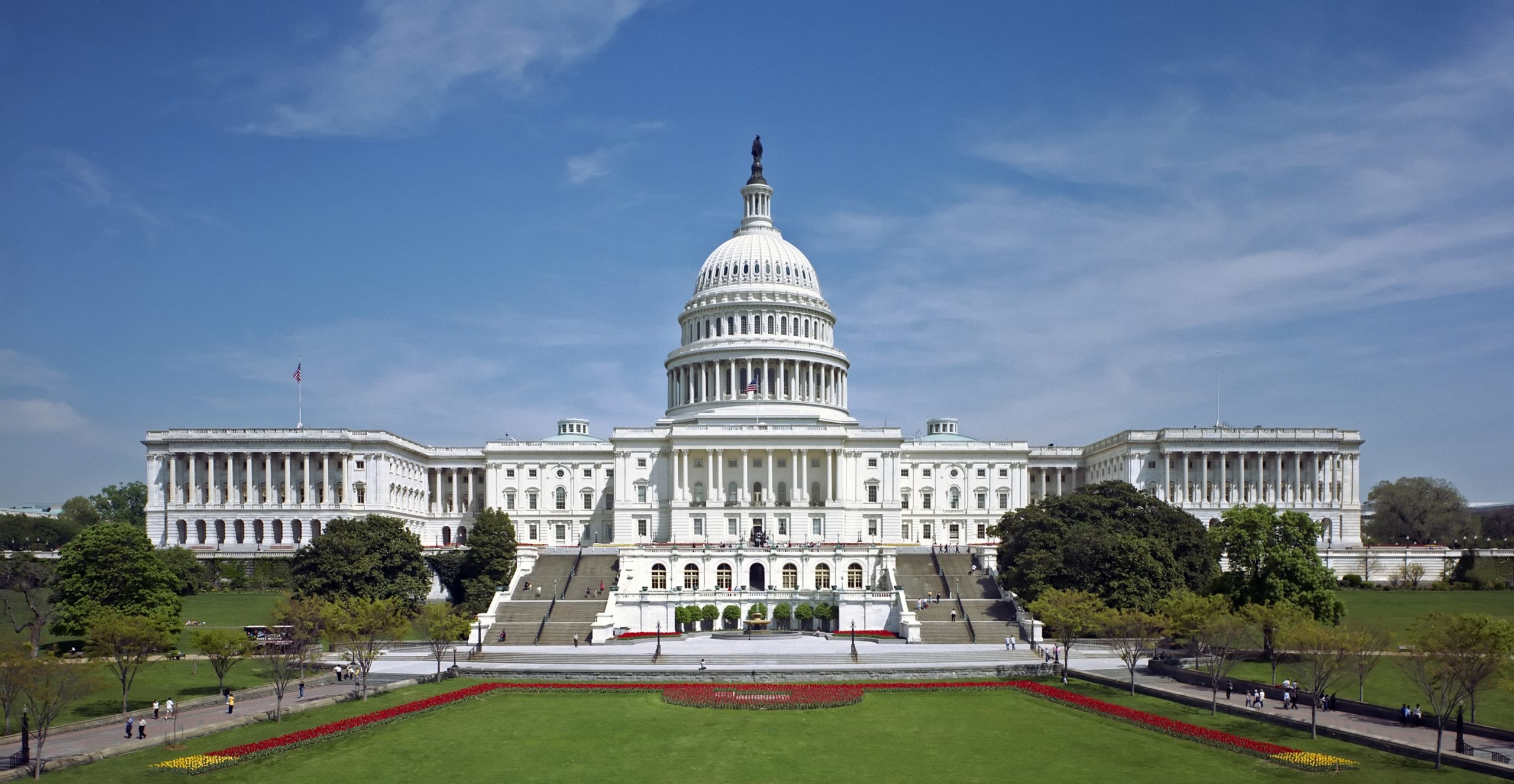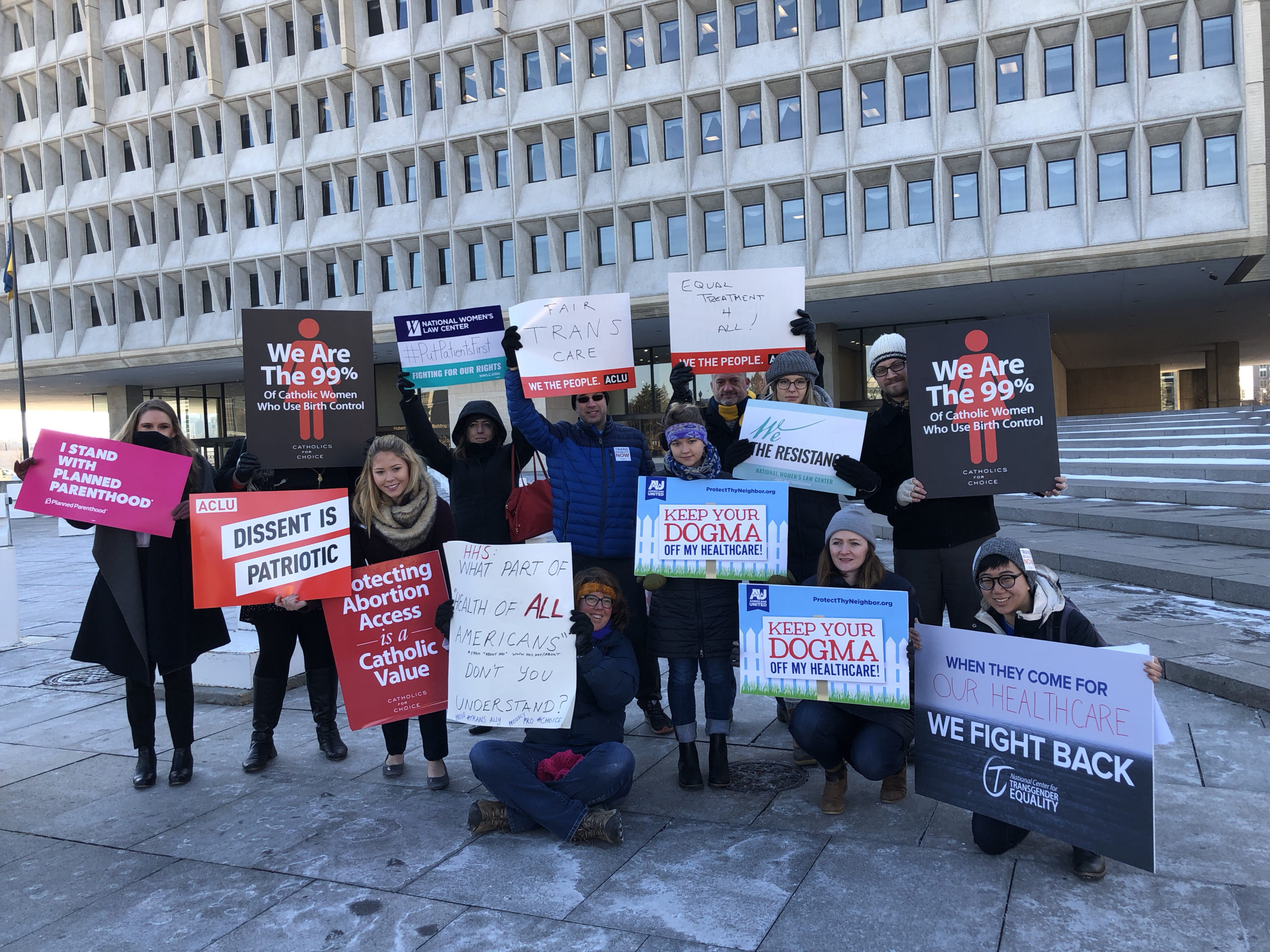Hits and Misses: Analysis of the 2022 Federal Funding Bill
This week the House and the Senate were in session to hash out differences in order to pass the annual bill that funds the government. We’ve been paying close attention to provisions that we know will make life better for families and our communities. Here’s a breakdown of our reactions to the bill:
COVID relief
The initial House bill proposed $15 billion for much-needed continued COVID relief. This funding would have included funds for international vaccine distributions–which is essential for protecting against new potential variants and closing the global immunization gap. But because Republican members refused to include this funding unless Congress reclaimed unspent previous pandemic-related state and local aid, this section was not included in the final omnibus. As we reach two years of living through a pandemic, we are horrified that members of congress are weaponizing the economic needs of our communities to limit our ability to stop this pandemic.
Access to Reproductive Health Care
Last summer, the House passed a funding bill that, for the first time in decades, didn’t have any harmful riders, including the Hyde and Weldon amendments. Unfortunately, because of anti-abortion lawmaker opposition, the final version included these unnecessary federal bans on coverage for abortion care. Given the right to abortion hangs by a thread, we are incredibly disappointed by this outcome, but we remain resolved to keep fighting for a future where these federal riders are forever eliminated.
However, there is other bad news about the funding bill and reproductive health care – the final bill did not include any increase in funding for the Title X Family Planning Program. This program provides critical support for safety-net clinics that serve some of the people who face the greatest barriers to care, regardless of whether patients can pay for that care on their own. The Program is rebuilding itself after the devastation wrought by the Trump Administration’s domestic gag rule, and the lack of additional investment in this funding bill makes rebuilding even more difficult.
While we greatly appreciate the Members who waged the historic fight to end harmful abortion riders, we understand that the fight to protect access to all reproductive health care, including abortion, will take ALL of us to win.
Health Care
We commend the omnibus’s focus on health care access and improving quality of care. The omnibus provides funding to address our nation’s abhorrent maternal health and mental health crises. We are excited to see provisions from the Maternal Health Quality Improvement Act included, which will improve the quality of care for new and expecting mothers. The bill also provides resources to improve best practices, train health care professionals, and better integrate maternal health care services in hopes of reducing maternal mortality and preventing adverse maternal health outcomes. The omnibus also significantly invests in mental health and substance use treatment, including increased funding to Certified Community Behavioral Health Clinics and care for mental health needs beginning in childhood. We also support the omnibus’s increase of Medicaid funding for American Samoa, the Commonwealth of the Northern Mariana Islands, Guam, Puerto Rico, and the U.S. Virgin Islands and the increase in funding for Indian Health Services.
However, each of these investments falls short of what is needed in this alarming moment. We are facing increasing maternal mortality and morbidity–with as many as 60,000 US women facing severe maternal morbidity every year. And a national crisis on mental health and substance use, which have only become more dire because of the pandemic.
Workplace Justice & Education
We have been demanding passage of the Pregnant Workers Fairness Act (PWFA) for nearly a decade. This bill is bipartisan, noncontroversial, and will help millions of pregnant workers stay safe at work. The Pregnant Workers Fairness Act is a common-sense piece of legislation that is urgently needed. Especially as COVID continues to pose real risks, Congress must do all it can to keep pregnant workers safe on the job. Pregnant workers are routinely forced to choose between a healthy pregnancy and a paycheck at a time when they may need their income the most to support a growing family. No pregnant worker should be pushed out of work because they need accommodations like an extra bathroom break, a properly fitting uniform, or to drink water while working. This bill is well-positioned to become law; the House passed the Pregnant Workers Fairness Act in May 2021, and it was voted out of the HELP Committee in August 2021 – in both instances with overwhelming bipartisan support. We’re disappointed it was not included in this funding bill, and we call on Senator Schumer to bring the bill to a floor vote, without delay.
In addition, the relatively modest increases in funding for enforcement of workers’ rights represent progress but fall short of what is needed after years of neglect.
The omnibus bill reauthorizes the Violence Against Women Act (VAWA), improves the VAWA transitional housing program, authorizes a study on housing needs of survivors of human trafficking, codifies a new VAWA Housing Directors position at the U.S. Department of Housing and Urban Development, and provides additional funding for VAWA training and technical assistance grants. VAWA supports comprehensive responses and services for survivors of domestic violence, dating violence, sexual assault, stalking, and human trafficking. The spending bill ensures that survivors aren’t denied access to housing or evicted from their current housing because of the violence committed against them while strengthening privacy protections.
Colleges and universities will now be required to conduct climate surveys assessing students’ experiences with domestic violence, dating violence, sexual assault, sexual harassment, and stalking, including their experiences with institutional responses. Given how underreported sex-based harassment is, and the need for greater data to get a better picture of what’s happening in schools, we are looking to forward to seeing this provision implemented. VAWA also establishes an interagency task force focusing on sexual violence in education, and a pilot program for restorative practices that campuses would be eligible for, providing an alternative pathway to healing and justice for survivors.
Income Security
We are excited that the omnibus bill will provide 25,000 more families with rental assistance, but far more is needed to address the underfunding of this program, which has led to only 1 in 4 families who are eligible receiving rental assistance. Congress must invest more in accessible and affordable housing in a reconciliation economic package.
However, we are disappointed that this bill excludes extending child nutrition waivers that have provided critical flexibilities for communities to feed children during this pandemic. This means that millions of children will lose access to summer and school meals after June 30. Reducing child hunger should not be a partisan issue.
Child Care
We appreciate the overall increase to child care and early learning programs of $558 million above the FY2021 enacted levels. Even with this increase, it remains that only 1 in 9 eligible young children actually receives subsidized care through the Child Care & Development Block Grant. Congress must pass a reconciliation economic package that lowers costs for families, including enacting a guarantee of high-quality affordable child care and Universal PreK, and ensures early educators are paid fair wages.
Many are still recovering from the problems in our communities that have been exacerbated by the pandemic. This year’s funding bill provides a much-needed funding boost but falls short of meeting the increased need and making the long overdue, systematic investments that ensure women and families have what they need to succeed.




